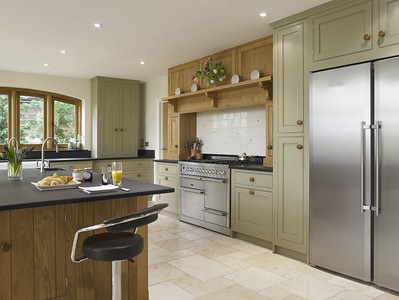
When you’re looking to start a hotel venture in the hospitality or catering area, you need to ask yourself whether investing in a commercial kitchen can pay you in the long run. The other option, of course, is residential kitchen which again needs careful consideration. The legalities required in setting up commercial or residential kitchen is more or less the same. But the million dollar question remains whether your residential kitchen is good enough to meet specific cooking needs. A residential kitchen is different from a commercial kitchen in many ways. Running a commercial kitchen is no easy a task; one requires different kitchen equipment for different cooking processes and tasks including baking, cooking, grilling and frying areas. Also, commercial cooking consumes a lot of space for specific jobs which, of course, needs proper selection of equipment.
Commercial Kitchen Layout
Consider the layout of a commercial kitchen, it is usually planned and designed to increase efficiency depending upon the order volume, work flow and number of people employed in the kitchen area. A well-designed layout will improve efficiency and provides a safe environment to work. But when it comes to residential kitchen, it's business as usual even without flow. A commercial kitchen is generally installed with electric and gas outlets at every cooking station, multiple sinks, commercial heating and refrigeration units and floor drains. Residential kitchens may or may not have all of these. Also, the volume of food being cooked in commercial kitchens is greater than in a residential kitchen. It is important to prevent cross contamination of food. Because residential kitchens are constrained by space, they cannot avoid this completely. The commercial kitchen environment requires considerable storage space. It needs to accommodate a large number of utensils, plates, pots, cutlery, pans, etc somewhere in the kitchen space; nowhere can they be stored in a residential kitchen. If you are planning a commercial kitchen you need to place special emphasis on efficiency, practicality, accessibility and functionality of the kitchen space. This also rings true in the case of residential kitchens though on a relatively smaller scale. If starting a restaurant is a sure thing for you, then investing in a commercial kitchen is a must. Don’t try to cut to the bone by making use of residential space. If you are looking to buy the latest commercial kitchen equipment, get in touch with EssEmm for expert advice and consulting you may need.Copyright © 2024 EssEmm Corporation